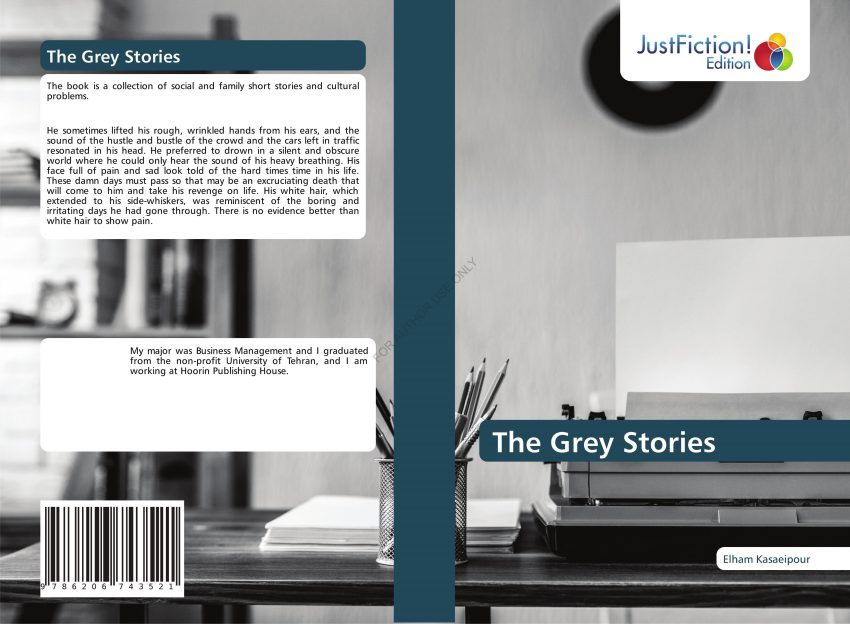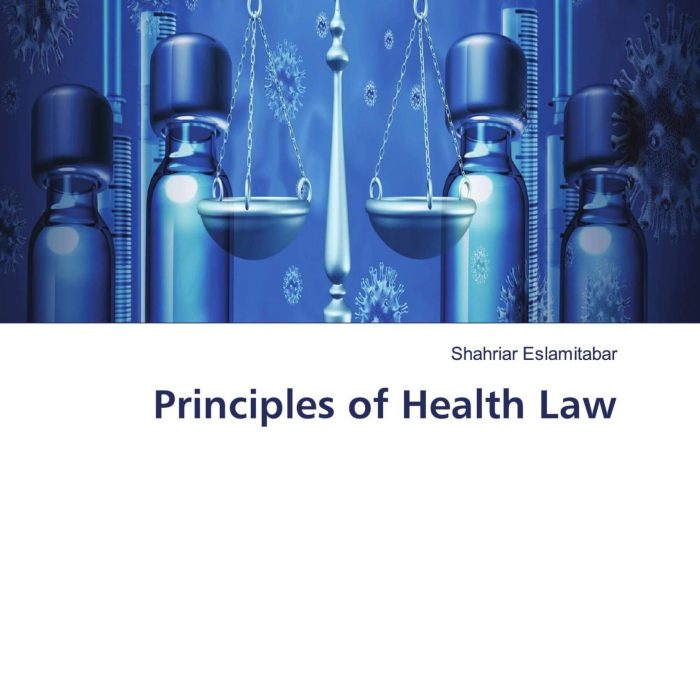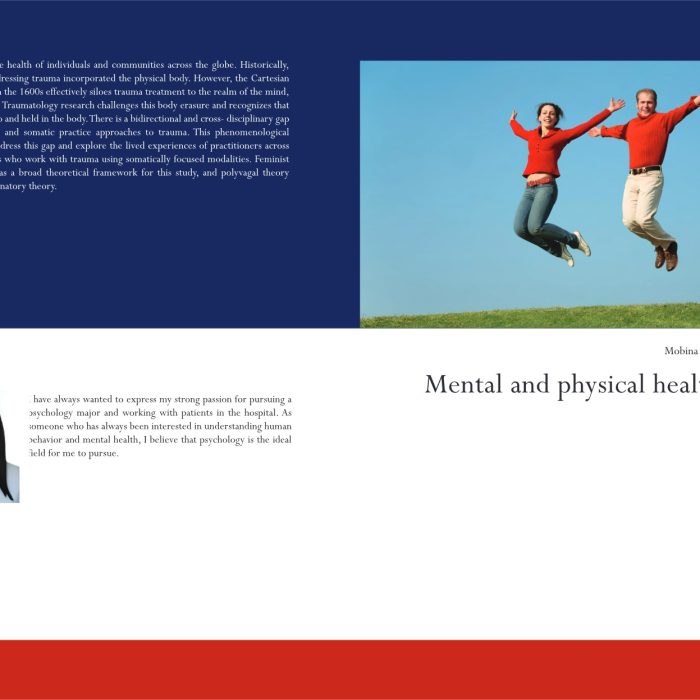کتاب The Grey Stories
۳۱۵,۰۰۰ تومان قیمت اصلی: ۳۱۵,۰۰۰ تومان بود.۱۵۷,۵۰۰ تومانقیمت فعلی: ۱۵۷,۵۰۰ تومان.
| تعداد صفحات | 40 |
|---|---|
| شابک | 978-620-6-74352-1 |
| انتشارات |

کتاب The Grey Stories – داستانهایی از سایه روشن زندگی
کتاب The Grey Stories مجموعهای از داستانهای کوتاه است که به بررسی پیچیدگیهای زندگی انسان میپردازد. هر داستان در این کتاب نمایانگر تقابل میان روشنایی و تاریکی، حقیقت و توهم، و انتخابهای دشوار انسانها در موقعیتهای حساس است. این اثر با سبک نوشتاری عمیق و مفاهیمی تأثیرگذار، خوانندگان را به سفری در اعماق احساسات و تفکرات انسانی دعوت میکند.
درباره کتاب The Grey Stories
The Grey Stories مجموعهای از داستانهای کوتاه با موضوعات متنوع است که به لحظاتی از زندگی پرداختهاند که در آنها هیچ چیزی سیاه یا سفید مطلق نیست. نویسنده با روایتی جذاب، شخصیتهایی را خلق کرده که در چالشهای زندگیشان با تضادها، انتخابها و پیامدهای آنها مواجه میشوند. این داستانها نه تنها سرگرمکنندهاند، بلکه به خواننده فرصت میدهند تا به ابعاد جدیدی از زندگی و انسانیت بیندیشد.
موضوعات کلیدی کتاب
- تضادهای اخلاقی: بررسی موقعیتهایی که در آنها انتخاب درست به آسانی قابل تشخیص نیست.
- روابط انسانی: روایت داستانهایی درباره پیچیدگی روابط میان انسانها و تأثیر آنها بر زندگی.
- جستجوی حقیقت: نمایش تلاش شخصیتها برای پیدا کردن حقیقت در میان تاریکی و ابهام.
- مفاهیم فلسفی و روانشناختی: پرداختن به سوالات عمیق درباره وجود، معنا و هدف زندگی.
ویژگیهای برجسته کتاب The Grey Stories
- سبک نوشتاری تأثیرگذار: نویسنده با قلمی قدرتمند و تصاویری زنده، داستانهایی را خلق کرده که ذهن خواننده را به خود مشغول میکند.
- داستانهای چندلایه: هر داستان دارای لایههایی از معناست که خواننده را به تفکر عمیقتر دعوت میکند.
- تنوع موضوعی: مجموعهای از داستانها با موضوعات متنوع که هر کدام تجربهای منحصر به فرد ارائه میدهند.
- ارتباط با واقعیت: داستانهایی که خواننده میتواند با آنها ارتباط برقرار کند و در زندگی خود بازتابی از آنها ببیند.
چرا کتاب The Grey Stories را بخوانید؟
اگر به دنبال مجموعهای از داستانهای کوتاه هستید که علاوه بر سرگرمکننده بودن، به چالشهای فکری و عاطفی نیز بپردازد، کتاب The Grey Stories بهترین انتخاب است. این اثر برای افرادی که به داستانهایی با عمق فلسفی و روانشناختی علاقه دارند، بسیار جذاب خواهد بود.
مخاطبان کتاب The Grey Stories
- علاقهمندان به داستانهای کوتاه: این کتاب برای کسانی که به خواندن داستانهای کوتاه و تأثیرگذار علاقه دارند، مناسب است.
- عاشقان ادبیات فلسفی و روانشناختی: اگر به مفاهیم عمیق و چندلایه علاقه دارید، این کتاب را از دست ندهید.
- خوانندگانی که به دنبال تفکر و تأملاند: این داستانها شما را به بازاندیشی در مورد زندگی، حقیقت و تصمیمگیریها دعوت میکنند.
سفارش کتاب The Grey Stories
برای خرید کتاب The Grey Stories و آغاز سفری هیجانانگیز به دنیای داستانهایی با مفاهیم عمیق و تفکر برانگیز، به بخش فروشگاه سایت مراجعه کنید یا با ما تماس بگیرید. این کتاب فرصتی برای درک بهتر انسانیت و کشف تضادهای زندگی است.
📘 پرسش و پاسخ درباره کتاب The Grey Stories
🔹 بخش اول: داستانهای کوتاه
❓ ۱. داستان “پیرمرد و چایخانه” درباره چیست؟
🔹 داستان “پیرمرد و چایخانه” به زندگی یک پیرمرد میپردازد که روزهایش را در یک چایخانه میگذراند و منتظر اتفاقات روزمره است. این داستان میتواند به مشکلات و انتظارات ناتمام پیرمرد اشاره داشته باشد و همچنین حس تنهایی و فراموششدگی که با گذشت زمان در او شکل میگیرد.
❓ ۲. داستان “انتظار” در کتاب چه مفهومی دارد؟
🔹 داستان “انتظار” حول محور فردی است که در یک موقعیت خاص در حال انتظار است. این داستان ممکن است به نوعی به فلسفه انتظار و تأثیرات آن بر زندگی افراد بپردازد. میتوان آن را به معنای انتظار برای تغییر یا وقوع چیزی بزرگتر در نظر گرفت.
🔹 بخش دوم: شخصیتها و مفاهیم
❓ ۳. شخصیت “رضا” در داستان چه ویژگیهایی دارد؟
🔹 شخصیت رضا ممکن است به عنوان فردی با مشکلات یا چالشهای درونی مطرح شود که در جستجوی معنا و هدف در زندگی است. او ممکن است نمادی از تلاشهای بیپایان یا دگرگونی درونی باشد.
❓ ۴. داستان “زن” چه پیامی را منتقل میکند؟
🔹 داستان “زن” ممکن است به مفهوم جنسیت، نقش زنان در جامعه یا چالشهای آنان اشاره داشته باشد. زن در این داستان ممکن است نمادی از مقاومت، شجاعت یا مشکلات زندگی باشد.
🔹 بخش سوم: داستانهای مختلف
❓ ۵. داستان “فریده” درباره چیست؟
🔹 “فریده” ممکن است به دنیای درونی یک شخصیت زن به نام فریده پرداخته باشد که در تلاش برای مقابله با شرایط دشوار زندگی است. این شخصیت ممکن است با چالشهایی مواجه باشد که او را به تغییر یا بازنگری در زندگیاش سوق میدهد.
❓ ۶. داستان “تهدید” چه ارتباطی با سایر داستانها دارد؟
🔹 “تهدید” ممکن است به حس خطر یا اضطراب درونی شخصیتها اشاره داشته باشد. در این داستان، تهدید ممکن است ناشی از موقعیتهای اجتماعی، فردی یا حتی درونی باشد که شخصیتها باید با آن روبرو شوند.
🔹 بخش چهارم: موضوعات اجتماعی و فلسفی
❓ ۷. “مراسم عروسی” در کتاب چه پیامی دارد؟
🔹 “مراسم عروسی” میتواند به عنوان نمادی از تغییرات بزرگ زندگی، تعهدات جدید یا حتی ترس از آینده دیده شود. این داستان ممکن است به نحوه رویارویی با تحولات اجتماعی و فردی در زندگی افراد اشاره کند.
❓ ۸. “فرشته نگهبان” در داستان چه مفهومی دارد؟
🔹 “فرشته نگهبان” میتواند به عنوان نمادی از محافظت، امید یا حمایت در شرایط سخت زندگی مطرح شود. این داستان ممکن است به افراد یادآوری کند که در هنگام سختیها، پشتیبانی و راهنمایی از سمت افراد دیگر یا خود در درون خود موجود است.
🔹 بخش پنجم: مفاهیم عمیقتر
❓ ۹. داستان “دریا” چه پیامی را منتقل میکند؟
🔹 “دریا” ممکن است به عنوان نمادی از آزادی، تغییرات و بیپایانی در نظر گرفته شود. این داستان میتواند به نگرشهای فردی نسبت به طبیعت و زندگی، و همچنین مبارزه با محدودیتها اشاره داشته باشد.
❓ ۱۰. داستان “کودک” چه مفهومی دارد؟
🔹 “کودک” ممکن است به معنای بیگناهی، امید و آغازهای جدید باشد. در این داستان، کودک میتواند نمایانگر دیدگاههای متفاوت یا یک شروع نو در زندگی باشد.
📌 نکات کلیدی:
- The Grey Stories داستانهای کوتاهی است که بر موضوعات عمیق انسانی، اجتماعی و فلسفی تأکید دارند.
- شخصیتها در این داستانها با چالشهای درونی و اجتماعی روبرو هستند و تلاش میکنند معنا و هدف زندگی خود را پیدا کنند.
- مفاهیم عمیق همچون انتظار، تهدید، تغییر و امید در سراسر داستانها به شکلهای مختلف به تصویر کشیده میشود.
این پرسشها و پاسخها به شما کمک میکند تا مفاهیم و پیامهای داستانهای The Grey Stories را بهتر درک کنید. 😊
| تعداد صفحات | 40 |
|---|---|
| شابک | 978-620-6-74352-1 |
| انتشارات |
محصولات مشابه
-
کتاب Assessing Interactional Competence through paired speaking tasks
۴۱۴,۰۰۰ تومانقیمت اصلی: ۴۱۴,۰۰۰ تومان بود.۱۷۹,۴۰۰ تومانقیمت فعلی: ۱۷۹,۴۰۰ تومان. -
کتاب Principles of Health Law
۱,۳۳۲,۰۰۰ تومانقیمت اصلی: ۱,۳۳۲,۰۰۰ تومان بود.۳۵۵,۲۰۰ تومانقیمت فعلی: ۳۵۵,۲۰۰ تومان. -
کتاب Unreliable numerical solutions
۵۴۰,۰۰۰ تومانقیمت اصلی: ۵۴۰,۰۰۰ تومان بود.۱۹۸,۰۰۰ تومانقیمت فعلی: ۱۹۸,۰۰۰ تومان. -
کتاب Mental and physical health
۴۰۰,۵۰۰ تومانقیمت اصلی: ۴۰۰,۵۰۰ تومان بود.۱۷۳,۵۵۰ تومانقیمت فعلی: ۱۷۳,۵۵۰ تومان.












